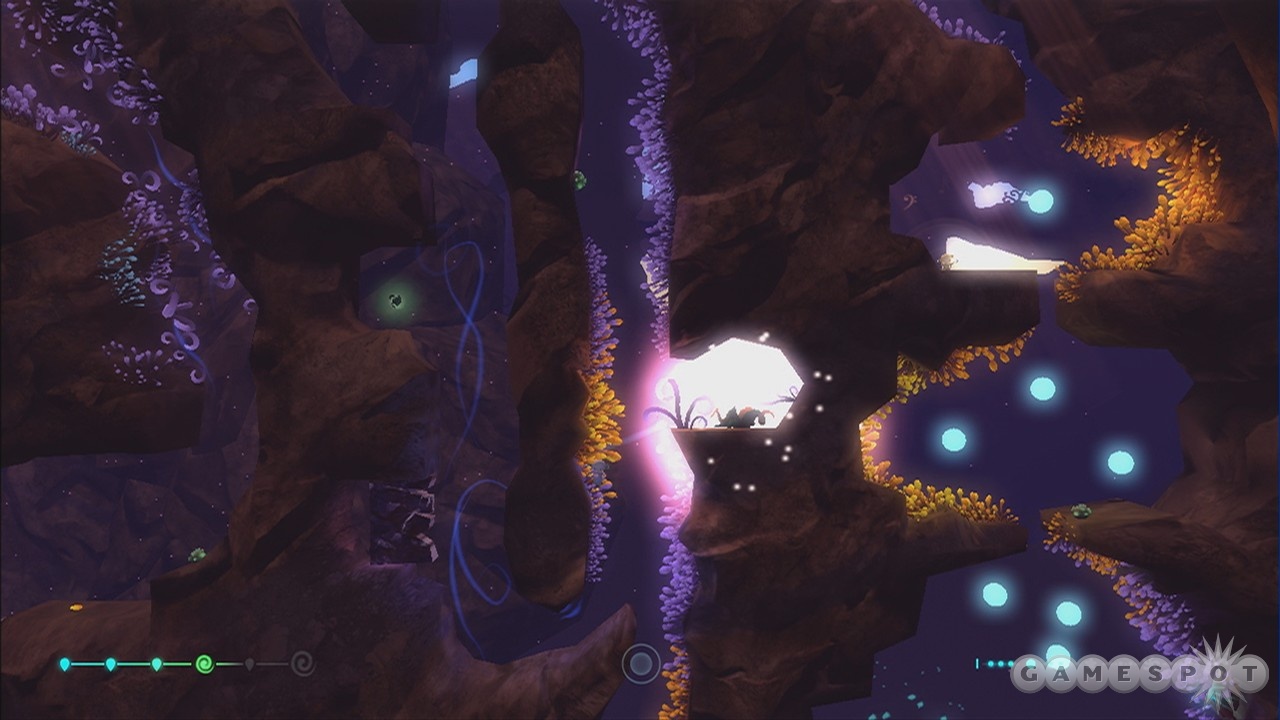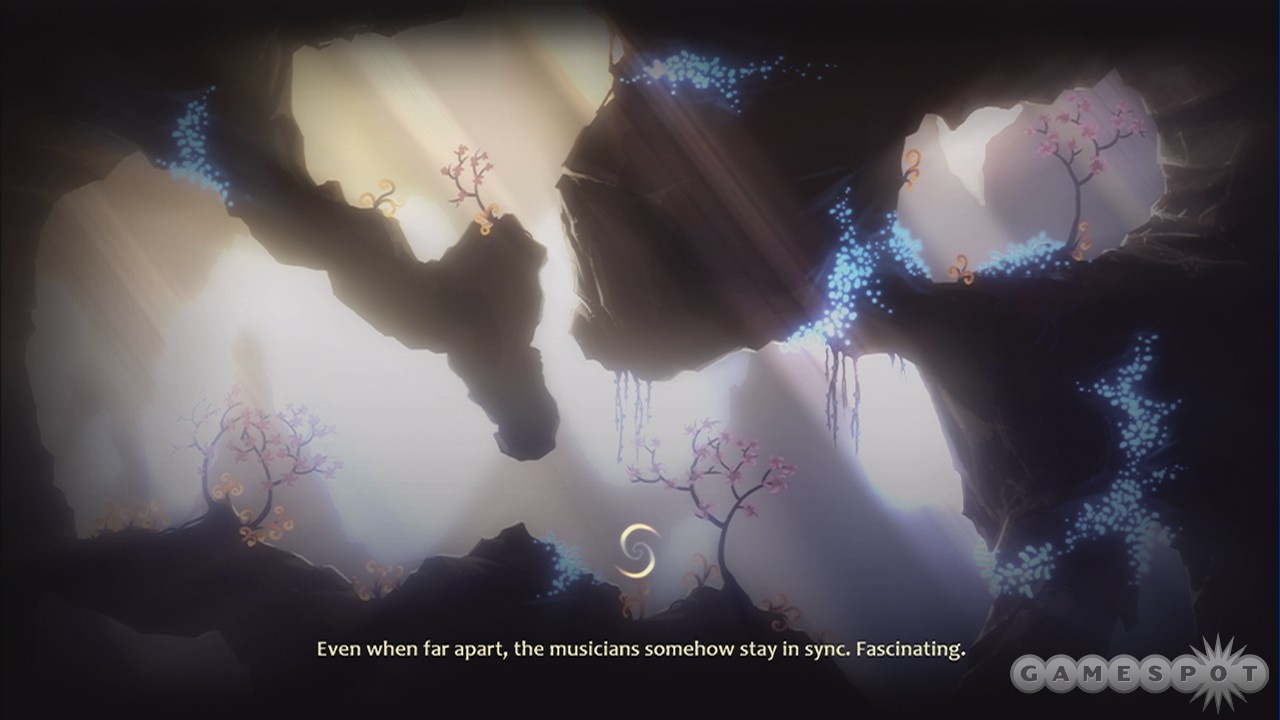Sound Byte: The UnderGarden
Meet audio director Mike Keogh of Vitamin-G and find out more about sound design.
 The UnderGarden was initially described to me as a casual, Zen-like game that's similar to something like Flower or Flow. Tom Mc Shea recently reviewed the game, which you can read here, and highlighted the dynamic musical score that can change on the fly. With the pleasant audio paired up with the beautiful visuals, The UnderGarden is a journey worth taking. Find out what the audio director of Vitamin-G had to say about creating the right sound for The UnderGarden and how he got his start in video games.
The UnderGarden was initially described to me as a casual, Zen-like game that's similar to something like Flower or Flow. Tom Mc Shea recently reviewed the game, which you can read here, and highlighted the dynamic musical score that can change on the fly. With the pleasant audio paired up with the beautiful visuals, The UnderGarden is a journey worth taking. Find out what the audio director of Vitamin-G had to say about creating the right sound for The UnderGarden and how he got his start in video games.
Why Are Video Game Adaptations Good Now? | Spot On Fallout 4 Next Gen Update Comparison Fallout 4 Steam Deck Verified Gameplay ALIEN: Rogue Incursion - Announcement Teaser Trailer Stellar Blade - 13 Things I Wish I Knew S.T.A.L.K.E.R. 2: Heart of Chornobyl — Official "Not a Paradise" Trailer Manor Lords - Official Medieval City Builder/RTS Launch Trailer Honkai: Star Rail - "Then Wake to Weep" | Version 2.2 Trailer Devil May Cry: Peak Of Combat | Dante: Blazing Tempest Gameplay Trailer SAND LAND — Official Launch Trailer Sea of Thieves Season 12: Official Content Update Video Stellar Blade - Hard Mode No Damage Gigas Boss Gameplay
Please enter your date of birth to view this video
By clicking 'enter', you agree to GameSpot's
Terms of Use and Privacy Policy
GameSpot: Could you tell us about yourself and how you got into sound design?
Mike Keogh: I think I fell in love with video games before music. As a kid, my Game Boy and I were inseparable. I did take piano lessons throughout my childhood and started to learn some basic theory in my early teens. Once I realized I knew enough to start goofing around and making up my own music instead of playing what I was supposed to, I spent a lot more time at the keyboard. I started writing this one song, and as it developed, I realized I was actually playing Kannon's Klaim from Donkey Kong Country 2, and that was a little bit of an epiphany for me. My dad has always been a home-studio enthusiast, and he graciously let me mess with his computer and fancy gear and start doing MIDI arrangements, and that's when I really started to get into music. A little bit into my university degree, I switched into music and learned a lot more about digital production. I played a lot of games throughout all of this too--I'm a gamer as much as a composer or sound designer.
GS: How did you get your start working in video games?
MK: I started working at Artech Studios as a co-op student in my final year of university. I was hired to work on the Xbox game Raze's Hell--initially as a sound designer. I had to beg them to let me do the music for that title, but doing the sound effects and a good chunk of the Kewlett (Raze's Hell's main enemy) dialogue was a fantastic experience. And I've been the sound guy for all of Artech and Vitamin G's projects since.
GS: What were some of the challenges when creating the sound for The UnderGarden?
MK: Creatively, the audio for this project really flowed nicely. I always find it easy to write music and do sound design when you're working with great material, and luckily, everything came together. That's not to say it wasn't a lot of hours because there was a serious crunch period for me when I was trying to get the music done. But like playing the game, it wasn't a really taxing or frustrating experience. I was involved to varying degrees during preproduction and throughout development, so I think I had a good sense of the game the entire time, and writing the music for it was a natural extension of that. It was a bit of extra work to make sure the musicians sound good alone and together and in every combination. Because of the way the mix is left up to the player, I really played with the music a lot to make sure that if the player just wants to bring along a drum loop or a bass line, each part still sounds good on its own.
Then, there's the more technical stuff. I really have to heap some praise on the programmers who implemented all my crazy ideas. Keeping the music in sync is far more difficult than you might expect! And voice usage was an issue--an entire level gets loaded into memory at once--and just about everything in our world makes sound. This means you have to pull off some pretty tricky stuff to keep the total number of sounds within reasonable limits. You always have to balance all these cool audio features you want with things like keeping the game running at a reasonable frame rate.
GS: What do you like most about your job?
MK: This is a tough one. It blows my mind that I'm paid to spend entire days alternating between playing games and writing original music. Working on music, I'll lock myself in my room, and I'll be so in the zone, I'll forget to eat. I love producing game soundtracks. But I also absolutely love the variety of tasks I'm given: sound effects, dialogue, implementation--they even let me into design meetings sometimes! Game development can be a demanding job, but it's truly also one of those situations where every day brings a new challenge, so it's always interesting. I love seeing how a game comes together from an idea to a finished product; it's amazing the work that goes into it. Even the best job in the world could be pretty terrible if you worked in a bad environment, so I should also mention that I work with fantastic people.
GS: What are some of your techniques? What's your process when coming up with the right sound?
MK: For music, I play almost everything on a keyboard, just adding layer after layer. Sometimes, I'll have a fixed goal, but more often than not, I'll play around with different instruments until I find something that works. For sound design, I'm a fan of iconic, somewhat more abstract sound design. It's classic game sound, in a sense, using tones and filtered noise to sweeten things. So whenever I can, I go back to my music software and use musical tones or various filtered percussion sounds as a basis for sound effects. Then, I dig around in stock libraries or record whatever else I need. I also try to voice any characters I can in our games, and though you might not find it for a while, there are some voice clips featuring yours truly in The UnderGarden (Hint: it involves trying on different hats). In all cases, though, I can not adequately convey how important I think iteration is for game sound. If you want it to be good, you have to get the people working on content actually playing the game and throw early versions of their stuff into the game to see what it feels like. I almost always do more than one pass to get sound effects and music right and work on implementations that tie visuals and player actions into the soundscape as tightly as I can. This is why The UnderGarden was the best project ever to work on; we wanted to make this thing synaesthetic, merging sound and light and movement all together on a scale I've only ever seen in really experimental stuff like Rez.
GS: What are your biggest influences?
MK: In terms of music, I own a lot of movie and game soundtracks, and I like electronic music from all ends of the spectrum from trance to avant-garde. I listen to all sorts of stuff: symphonic, pop, new age, rock. The UnderGarden soundtrack was like a calm reflection on everything I like in all those genres. I was trying to have it be a little bit more folksy and a little bit more pastoral than most of what I've done in the past. But several previews have mentioned that it's electronic sounding, so I guess those video game music roots run deep. And I'm very OK with that.

GS: Do you have tips for aspiring sound designers?
MK: I think the most important thing for anyone who wants to get into any creative field is to practice their craft. Dedicate yourself completely and don't be afraid of making junk along the path to honing your abilities. Record a new track every week, get a portable recorder and capture your own sounds, take videos you think are cool and see if you can do new audio tracks. Just invent projects if you don't actually have them, but if you ask everyone you know, somebody somewhere knows an indie game or a student film in need of audio. Try different styles, step outside your comfort zone, and just make as much stuff as you can. Nothing will make you better than actually trying.
GS: Thanks for your time!
Got a news tip or want to contact us directly? Email news@gamespot.com

Join the conversation